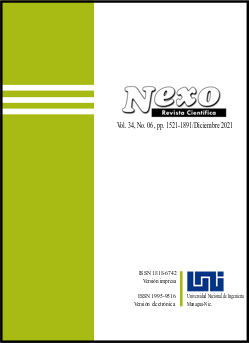University campuses in Russia: architectural and urban development typology
DOI:
https://doi.org/10.5377/nexo.v34i06.13172Keywords:
Architectural and Urban Typology of Campuses, Architecture, Campus Location, Spatial Planning, University, Ways of Spatial DevelopmentAbstract
The purpose of the present study is to develop a typology of university campuses reflecting all their diversity. The main attention is paid to the peculiarities of the location of the university campuses relative to the settlements, as well as their spatial planning arrangement. In general, depending on the spatial planning arrangement, three types of university campuses are defined and analyzed, namely, dispersed, dissected, and compact (local). The features of university complexes located in the metropolitan areas, largest, and large cities, as well as in medium and small cities, and outside of large settlements in the suburban area have been determined depending on the location of campuses relative to settlements. Besides, the authors have identified the ways of spatial planning development of existing university complexes and justified improving the spatial planning arrangement of university campuses. In general, four ways of the spatial development of existing universities are identified: purchasing facilities in the adjacent territory to expand the existing campus; placing the necessary additional facilities in the adjacent and other areas of the city, that is, integrating into the urban environment; creating an additional campus in a remote territory (often in the suburbs); and moving all or part of the university facilities to a new campus with a full-fledged infrastructure in another area of the city or suburb. The article provides examples of university campuses (complexes) in Russian cities for all the types considered, provided with the attached graphic schemes.
Downloads
2414
Downloads
Published
How to Cite
Issue
Section
License
Copyright (c) 2021 Universidad Nacional de Ingeniería

This work is licensed under a Creative Commons Attribution 4.0 International License.
The authors who publish in Nexo Scientific Journal agree to the following terms:
- Authors retain the copyright and grant the journal the right of the first publication under the license Creative Commons Attribution License, which allows others to share the work with a recognition of the authorship of the work and the initial publication in Nexo Scientific Journal.
- Authors may separately establish additional agreements for the non-exclusive distribution of the version of the work published in the journal (for example, in an institutional repository or a book), with the recognition of the initial publication in Nexo Scientific Journal.
- Authors are allowed and encouraged to disseminate their works electronically (for example, in institutional repositories or in their own website) before and during the submission process, as it can lead to productive exchanges, as well as earlier and greater citation of published works.










